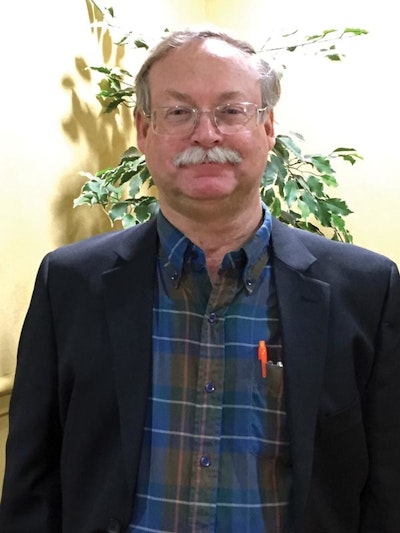
Interested in Safety?
Get Safety articles, news and videos right in your inbox! Sign up now.
Safety + Get AlertsPennsylvania has no shortage of groups working to promote onsite wastewater systems. Two of them represent installers, pumpers and other septic system experts, while two others are specialized groups for enforcement officers and soil scientists.
The Pennsylvania Septage Management Association (PSMA) was formed in 1984 to represent pumpers, haulers and installers, according to President Kyle Rigby. It now has around 200 members. The Pennsylvania chapter of the National Onsite Wastewater Recycling Association (POWRA) was formed in 2002 to serve a broad range of constituents including onsite system consultants, installers, regulators and soil scientists. President Greg Marshall says it has 35 members.
All four groups hold seats on the state’s Sewage Advisory Committee, which advises Pennsylvania’s Department of Environmental Protection (DEP) when it comes to regulating the industry. They also share a lot of members. Marshall was on the board of the Pennsylvania Association of Sewage Enforcement Officers (PASEO) before becoming president of POWRA. “We know a lot about each other’s business, and our issues affect everyone in our groups,” says Marshall.
PSMA and PASEO also have the same executive administrator, Mark Mitman. “We want to work with the sewage enforcement officers so we can correct any problems or issues with onsite systems or installations,” says Rigby. “He can help both organizations address the issues.”
INCREASING ENFORCEMENT
Under state law, townships and municipalities enforce the regulations promulgated by the DEP. As one of the states in the Chesapeake Bay Program, Pennsylvania is stepping up efforts to reduce water pollution from all sources.
“The DEP is asking townships to be more active in regulating and inspecting onsite systems,” says Rigby. “Pennsylvania is very local-oriented and delegates a lot of responsibility to local authorities. Unfortunately, that leads to a lot of different interpretations. We try to educate the townships. Most of them require pumpers to be registered with their townships, and some are starting to ask if they are members of PSMA because they know we do a good job of training.”
One of the challenges in Pennsylvania has been turnover at the DEP, which has had three different secretaries in three years. With a new governor in 2015 comes a new cabinet. But the DEP secretary position had changed hands in the two years prior, as well. “It slows up anything that is going to be done as far as regulations and approval of new systems,” says Rigby. Technologies not included in the regulations have to be approved as they become available.
Marshall says one of the bigger problems is that the Sewage Facilities Act hasn’t been updated since 1994, despite an effort about five years ago. “Our Sewage Advisory Committee went through a lengthy process reviewing all the regulations line by line,” he says. “We came out with some really good proposed changes. Unfortunately, with the political climate, or it might have been that the fracking issues kind of sidetracked things, there wasn’t the will to get things done. We’re still stuck in that limbo. Ultimately it needs to be done.”
Another change at the top creates uncertainty about direction of the department and even impacts staffing of the agency because other leadership positions, such as deputy administrators and bureaus heads, may
also change.
WORKING TOGETHER
The groups were able to push an important bill through the Legislature in 2013 to clarify that properly designed and installed systems adequately protect the watershed. “There were challenges posed by some environmental groups that were holding up development in what are called special watershed protection areas,” explains Marshall. “The Legislature acted rather quickly to pass that act.”
The revision was necessary to make it clear that such systems meet the state’s antidegradation requirements. Through lobbying efforts by the various groups, they were able to get a bill introduced, and it got a lot of support. “It was probably the quickest environmental regulation I’ve seen passed,” says Marshall. “The Sewage Advisory Committee and the influence our groups have with the Legislature are our biggest asset.”
Both PSMA and POWRA focus on education of their members, though their offerings are different. POWRA has two events a year that focus mainly on alternatives to standard septic systems. Recently they explored a wetlands drip treatment system at Stroud Water Research Center and visited the waste recycling facility at Kline’s Services.
Other events have included tours of a large-volume spray irrigation system at Penn State and a visit to Rodale Institute, an organic farming research center, to see its wetlands drip treatment system. The group has also visited different innovative alternative residential systems. “Our group is more focused on that type of training rather than the more formal classroom training for continuing education,” says Marshall. “This year, we are visiting sites to see some problem areas, what worked and what didn’t, and how to overcome difficult sites. Then we’ll have a session detailing the alternative systems that are available in the state.”
TIME-OF-SALE INSPECTIONS
PSMA’s continuing education includes certification for real estate inspections. While time-of-transfer inspections are not required in the state, most banks are requiring them. There is no state certification for such inspectors, so PSMA offers a two-year certification that requires renewal training.
“There is no mandate to be a certified installer. Anybody can do it as long as they follow the design and the work is approved by the local Sewage Enforcement Officer,” says Rigby. Classes for installers and pumpers are offered during its winter conference every January and periodically throughout the year.
“We are really pushing training on the proper installation of septic systems and worked with DEP on that,” he adds. “We also do a lot of work on training for confined space entry, safety protocols and vacuum truck operation. Our members spend a lot of time and money sending their employees to our training sessions to provide quality service to homeowners and protect the environment.”
PSMA also provides training for installers and inspectors in New Jersey to meet that state’s continuing education requirements. PSMA would like Pennsylvania to begin certifying inspectors and installers and has been working to get such regulations. While there may be some interest in the idea, there hasn’t been much progress to date. So the groups continue to do what they can so consumers get quality onsite wastewater services.






